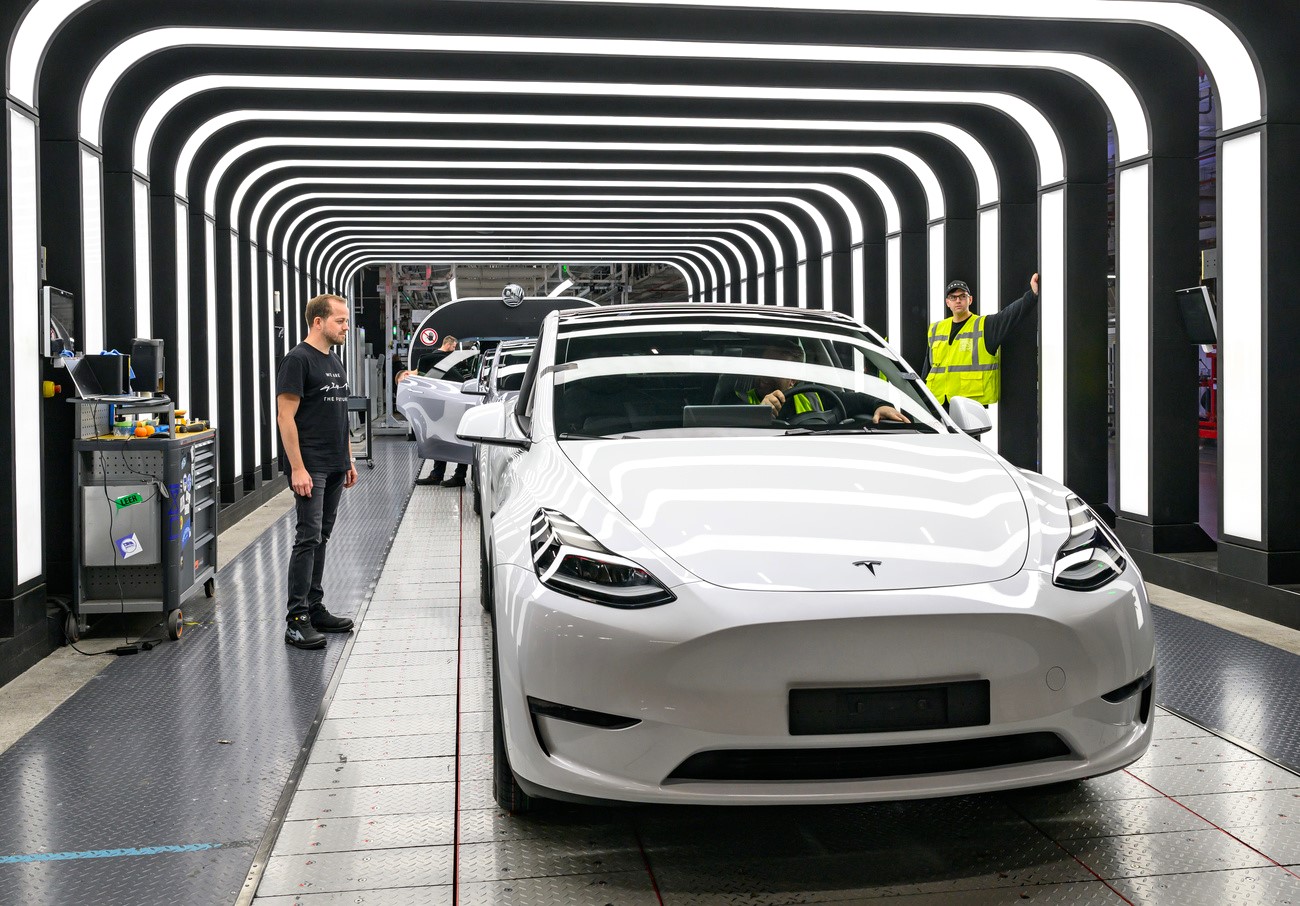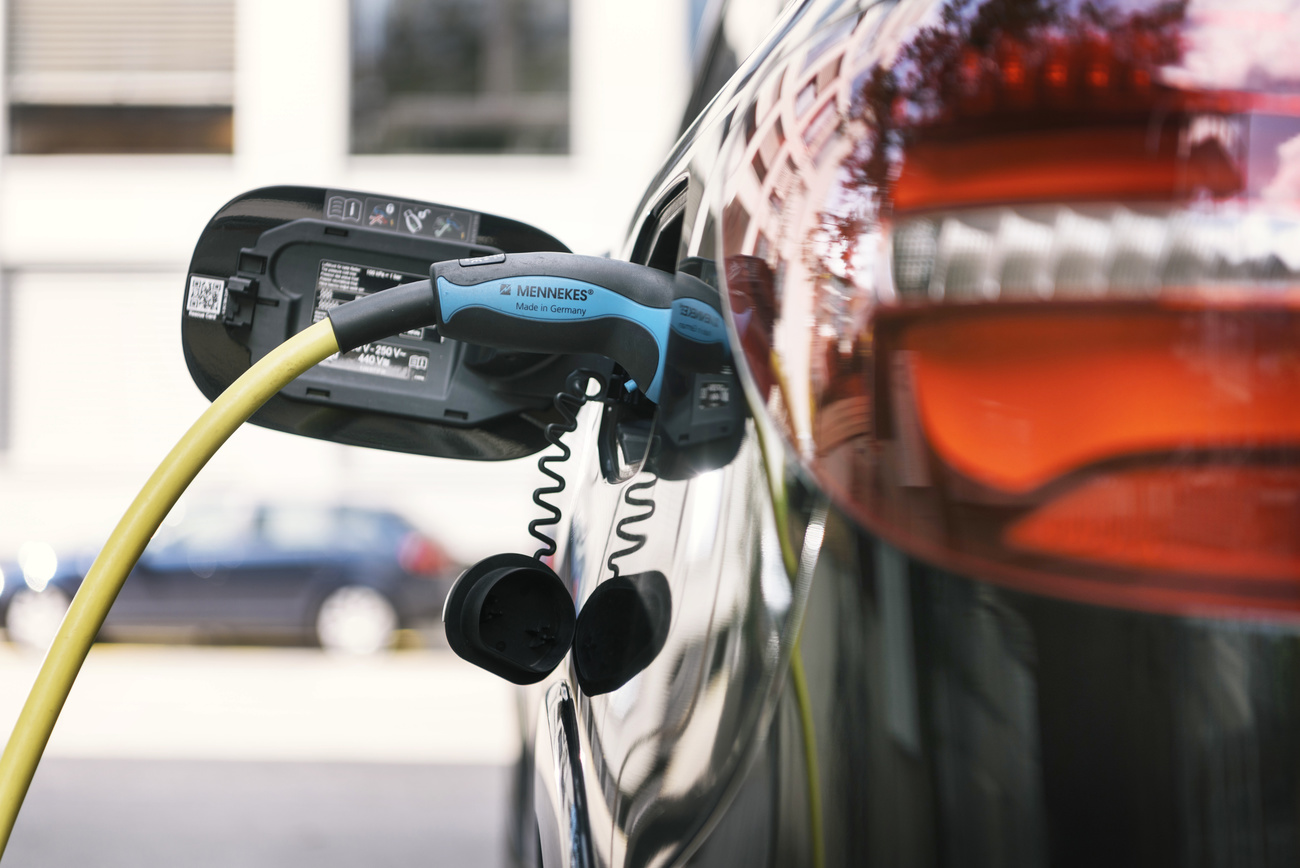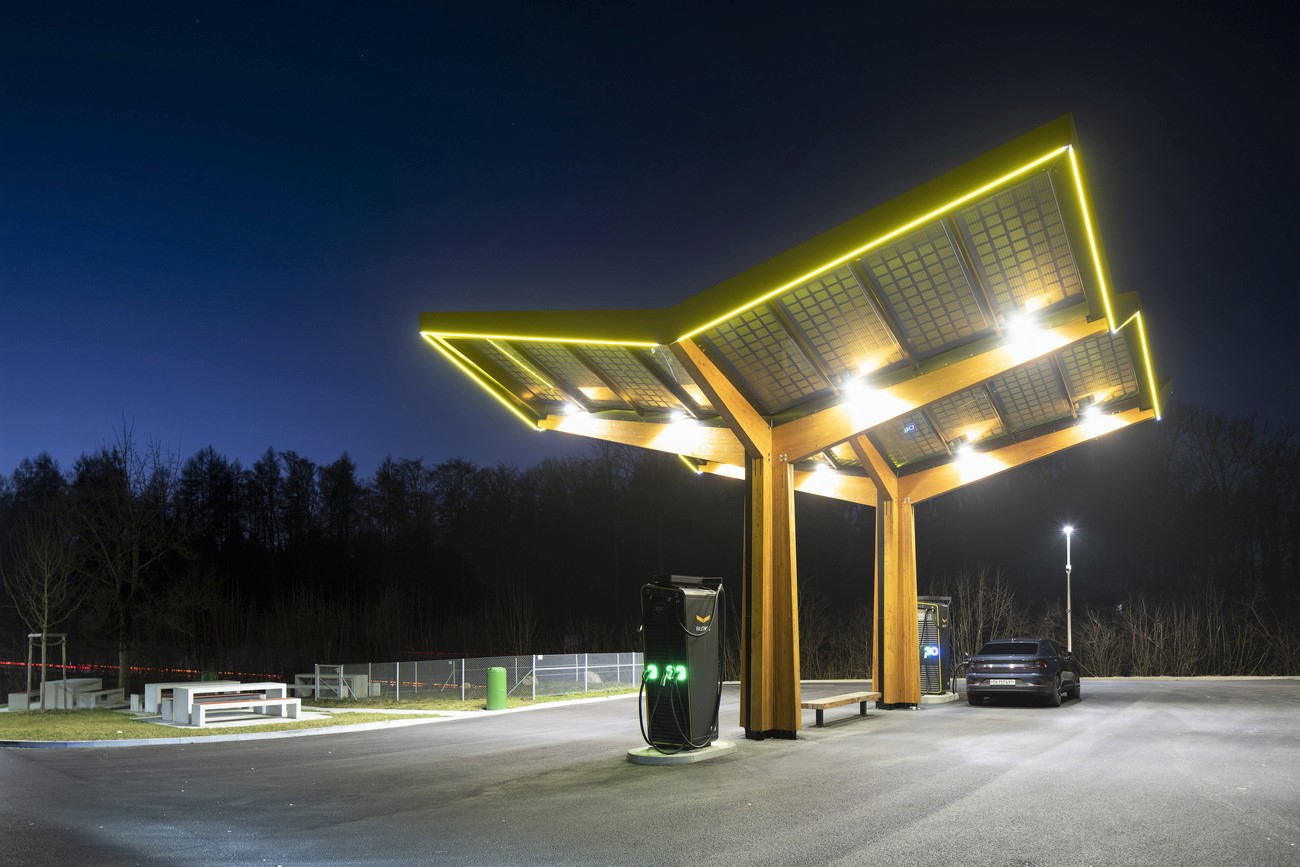Electric car sales accelerate worldwide but stall in Switzerland

Globally, the electric vehicle market is booming – but not in Europe and Switzerland, which have seen a first drop in sales after years of growth. There is good news, however, for those wanting to buy an electric vehicle this year: prices are expected to sink.
Worldwide there are more and more electric cars on the roads. Over 17 million were sold in 2024, some 25% more than the previous year, according to the company Rho MotionExternal link, which provides forecasts and analysis on the electric vehicle and battery markets.
The greatest upsurge was in China (+40%) and in the United States and Canada (+9%). By contrast, Europe as a whole, including Switzerland, recorded a decline in sales of around 3%. This was the first slowdown after four years of strong growth, although in some individual countries, such as the United KingdomExternal link, the market continued to prosper.
In Switzerland, the drop in new registrations of electric cars mirrors the decline in new vehicle registrations overall, petrol and diesel cars included. In 2024, 5% fewer new cars were put on the roads than in 2023, the association of Swiss car importers, Auto Schweiz, announced early this year.
On top of this, however, there is an actual decrease in interest in fully electric cars. Their market share – that is, the proportion of electric cars in the total number of new registrations – fell from nearly 21% in 2023 to around 19% in 2024. The same trend is seen for cars that have combustion engines as well as electric motors and rechargeable batteries (plug-in hybrids).
Switzerland still ahead of Italy and Germany
In 2024, electric or plug-in hybrid cars made up 28% of new registrations in Switzerland (compared with 30% in 2023). This was the first setback for such vehicles after steady growth since 2015.
Although Switzerland is doing better than its neighbours – the percentage is around 18% in Germany and 7% in Italy – it is still far from its target of 50% of newly registered cars being fully electric or plug-in hybrid by the end of 2025External link.
The country leading the international electric mobility ranking is Norway. It is expected this year to become the first nation in the world to sell zero-emission vehiclesExternal link only. The Norwegian government has introduced a variety of perks to promote the purchase of electric vehicles, such as VAT exemptions for the cheapest models and discounted motorway tolls. Electric cars also have access to bus lanes.
Not surprisingly, Norway is also the country with the highest proportion of electric and plug-in hybrid vehicles: 23 out of every 100 vehicles. In Switzerland, meanwhile, the vehicle fleet is still heavily dominated by petrol and diesel cars, and only four out of every 100 cars have a rechargeable electric motor.
According to the industry association Swiss eMobilityExternal link, the slowdown in the progress of electric mobility in Switzerland last year was predictable. Since January 1, 2024, electric cars have once again been subject to import tax, from which they had been exempt from 1997. This has led to an increase in sales prices. An electric vehicle costs on average 20% more than a petrol car.
Shortage of private charging stations
In Switzerland, the transition from fossil fuels to electricity is thus not yet a foregone conclusion, although the country has “one of the best networks of public charging stations in the world”, Krispin Romang, director of Swiss eMobility, told the newspaper 20 MinutenExternal link.
There are currently almost 20,000 public charging points in Switzerland – twice as many as in 2020.
People in Switzerland have a harder time, however, recharging their electric cars at home or at work. The majority of Swiss live in rented accommodation, where they often do not have access to a private charging station. Electric cars will only become more widespread if drivers can charge them up easily in their parking spaces.
“There is no point in buying an electric car if there is nowhere to charge it,” a woman toldExternal link Swiss public television, RTS, after her landlord refused to install a charging station on the property.
The situation is different in Norway, where car parks have long been equipped with socket outlets. There, people living in apartment blocks can request the installation of charging stations, and property owners can apply for government subsidies to do so.
Lower prices ahead?
The good news for those thinking of buying an electric car is that prices are expected to fall this year. This is due to the introduction of cheaper batteries and the overproduction of electric vehicles, especially in China, as Laurent Petizon, head of the automobile sector at the financial consultancy firm AlixPartners, told RTS.
In Switzerland, prices could fall by 10–15% compared with last year, predicts Nicolas Leuba, vice-president of the Swiss Motor Trade Association. “This is good news, as it means that new electric cars can be sold to customers who are hesitating because prices are too high.”
Edited by Balz Rigendinger. Adapted from Italian by Julia Bassam/sb

More
Newsletters

In compliance with the JTI standards
More: SWI swissinfo.ch certified by the Journalism Trust Initiative












You can find an overview of ongoing debates with our journalists here . Please join us!
If you want to start a conversation about a topic raised in this article or want to report factual errors, email us at english@swissinfo.ch.